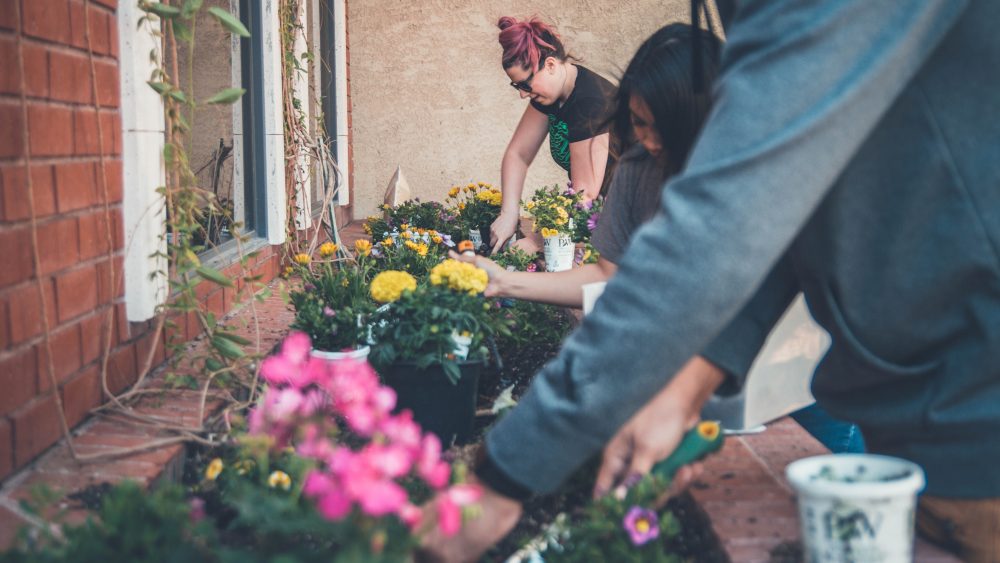In the UK, one in eight households has no access to a garden, and BAME households are nearly 400% more likely to have no access to outdoor space at home at all.
New data from the ONS shows for the first time the distribution of private outdoor space (gardens) across the UK and it points to a massive divide between the haves and have nots when it comes to access to green space.
Whilst this might not be a huge shock, the impact of this inequality has come into stark relief during lockdown when using a garden or going to the park has been an essential support for so many people’s mental and physical health. Access to green space provides a multitude of benefits including space to exercise, meet family or friends, connect with nature or just to breathe and relax. Benefits out of reach to so many.
The global pandemic has thrown a sharp light on inequality in so many aspects of our lives, and how our homes and environments can either support or degrade our health and wellbeing is a key factor.
Whilst only 7% of people in managerial, administrative, professional occupations live without a garden, that figure rises to 20% of those in semi-skilled and manual occupations, and the unemployed, and 37% of BAME people in England have no access to outdoor space at home at all, whether it be a private or shared garden, a patio or a balcony.
This disparity means that access to parks and playing fields is of even greater significance, yet many councils took the decision to close parks or limit access during lockdown, compounding problems of access and equality.
This is not just an issue of justice. There are real and lasting impacts that arise from these facts. Data from the Thriving Places Index shows that, at a local authority level, a higher percentage of green land cover is related to a lower prevalence of some severe mental illnesses such as psychosis, as well as lower average anxiety self ratings.
There’s strong and growing evidence of the multiple benefits that being in green space brings. For example, a study in the Netherlands cited in King’s Fund report into the benefits of gardening showed that every 10 per cent increase in exposure to green space translated into an improvement in health equivalent to being five years younger with similar benefits found by studies in Canada and Japan.
Yet despite the multiple benefits brought by green space policy discussions normally centre around the costs of maintaining these spaces rather than the value that they bring to health, wellbeing, and community outcomes. And as things stand, the situation is set to get worse.
Fields In Trust estimate that 2.69 million people do not live within a 10 minute walk of any green space, and that over the next two decades green space provision per person across Britain could reduce by 7.6%. Similarly, data from the Woodland Trust shows a large variation in the availability of accessible woodland in different areas with decreasing incentives to landowners for provision of public access or for creation of new woodland.
It seems that the lack of access to green space is yet another symptom of our ailing economic model – which not only privileges consumption over wellbeing but creates deep inequality in how even shared natural resources are distributed.
But the Covid crisis (on the heels of Brexit divisions and looming climate breakdown) have made it clearer than ever that now is the time for action, for rapid transition to a sustainable, equitable economy that delivers growth in the quality of our lives, not merely the quantity of our wealth. Access to green space must play a key role in this recovery. We need to be brave enough to ask open questions about the kind of places people want to live in – (and what sort of environments are safe or safer under pandemic conditions) rather than allowing policy on green space to be driven by imperative to ‘build build build’.
Whilst a national focus on wellbeing and an agenda set by central government would be welcome for supporting this shift, it’s not a prerequisite for beginning to make the change that we want to see. Systematic economic change can come, and should come, from all levels and sectors of the economy. The Centre for Thriving Places offers a raft of support services and tools to make this transition possible for towns, cities and regions across the UK right now. If pioneering leaders are interested in putting what matters to people and planet first in their bid to build back better, we are here to help.
There are many signs of hope with thousands of inspiring examples of community action for green space sprouting up across the country. It’s key that these people-led projects are taken seriously and given the support and attention they need to flourish – particularly if they seek to address both social and environmental concerns, connecting questions of access and equality to wellbeing and health (see some fantastic Bristol examples in this Guardian article). To build back better we need to see these issues as interconnected – and plan for a world where people, places (and plants!) can truly thrive.



Comments are closed.